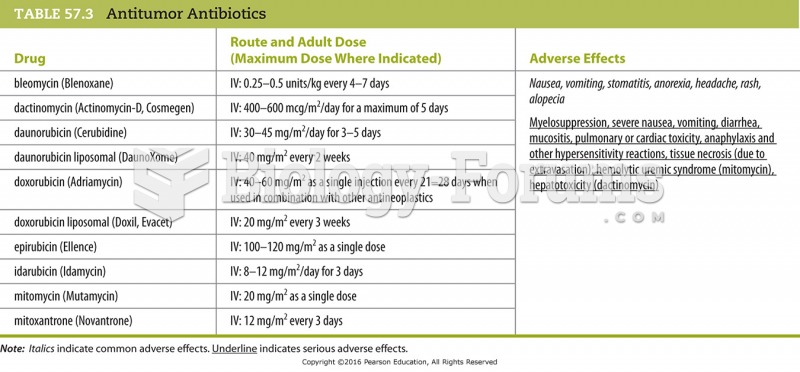|
|
|
About 3.2 billion people, nearly half the world population, are at risk for malaria. In 2015, there are about 214 million malaria cases and an estimated 438,000 malaria deaths.
Lower drug doses for elderly patients should be used first, with titrations of the dose as tolerated to prevent unwanted drug-related pharmacodynamic effects.
Certain rare plants containing cyanide include apricot pits and a type of potato called cassava. Fortunately, only chronic or massive ingestion of any of these plants can lead to serious poisoning.
HIV testing reach is still limited. An estimated 40% of people with HIV (more than 14 million) remain undiagnosed and do not know their infection status.
All adverse reactions are commonly charted in red ink in the patient's record and usually are noted on the front of the chart. Failure to follow correct documentation procedures may result in malpractice lawsuits.
 Before the advent of vaccinations and antibiotics, infectious diseases such as cholera were the scou
Before the advent of vaccinations and antibiotics, infectious diseases such as cholera were the scou
 This 80-year old man in a village in Hubei, China, has slowed down, but he has not retired. He is ...
This 80-year old man in a village in Hubei, China, has slowed down, but he has not retired. He is ...





